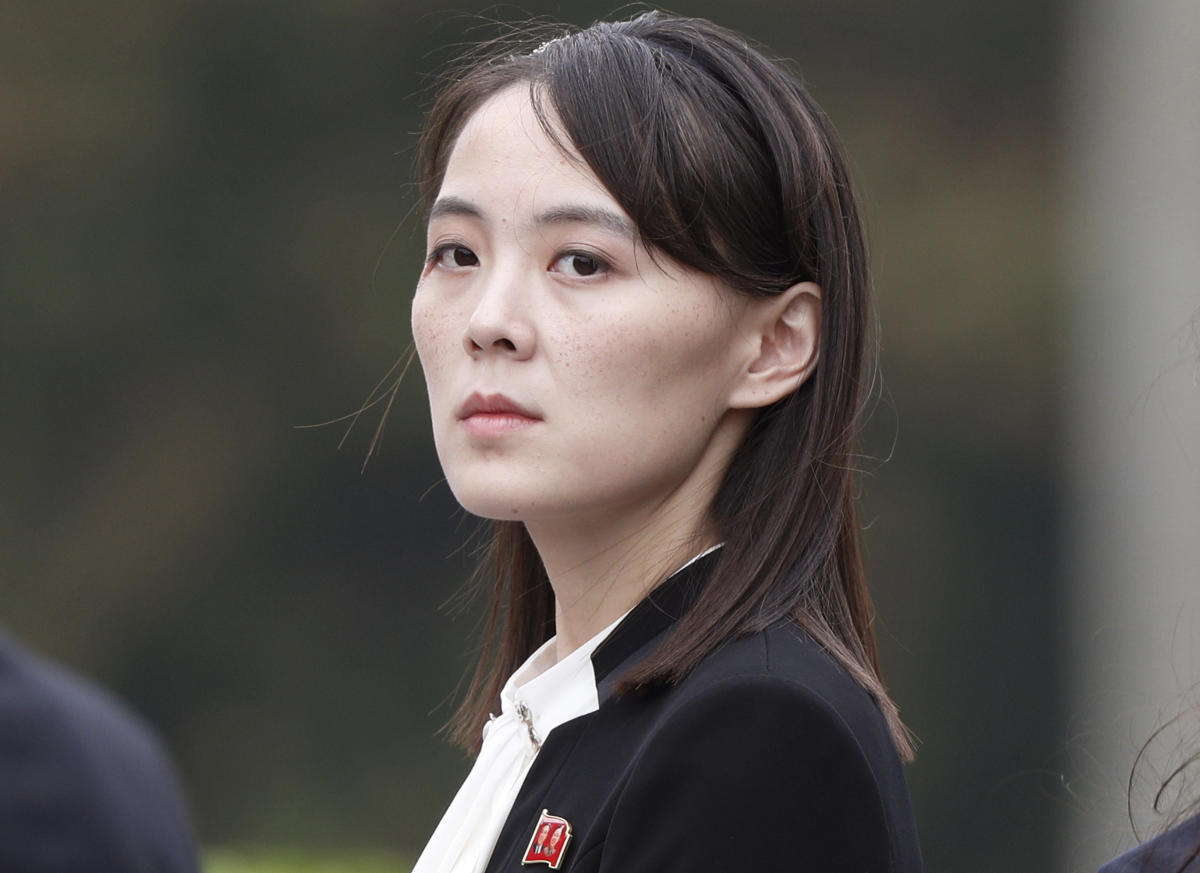World
Sister of North Korean leader Kim calls South Korea’s live-fire drills ‘suicidal hysteria’

SEOUL, South Korea (AP) — The powerful sister of North Korean leader Kim Jong Un called South Korea’s recent front-line live-fire drills “suicidal hysteria” as she threatened unspecified military steps Monday if further provoked.
The warning by Kim Yo Jong came after South Korea performed firing exercises in its tense land and sea borders with North Korea in the past two weeks. The exercises were the first of their kind since South Korea suspended a 2018 agreement with the North aimed easing front-line military tensions in June.
“The question is why the enemy kicked off such war drills near the border, suicidal hysteria, for which they will have to sustain terrible disaster,” Kim Yo Jong said in a statement carried by state media.
She accused South Korea’s conservative government of deliberately escalating tensions as a way to escape a domestic political crisis. She said the riskiness of the South Korean drills is clear to everyone as they happened amid “a touch-and-go situation” established after the U.S., South Korea and Japan recently held a new military exercise that North Korea views as a security threat.
“In case it is judged according to our criteria that they violated the sovereignty of (North Korea) and committed an act tantamount to a declaration of war, our armed forces will immediately carry out its mission and duty assigned by the (North Korean) Constitution,” she said, without elaborating.
North Korea has been engaged in a provocative run of weapons tests since 2022. But its two recent tests — one on a missile with “a super-large warhead” and the other on a multiwarhead missile — drew widespread skepticism from South Korean officials and experts who said North Korea likely fabricated successful launches to cover up failed tests.
In early June, South Korea fully suspend the 2018 inter-Korean military pact after North Korea flew balloons carrying manure, cigarette butts and waste paper across the border to protest South Korean activists scattering political leaflets in the North via their own balloons.
The military agreement — reached during a short-lived era of reconciliation between the Koreas — required the two countries to cease all hostile acts at border areas, such as live-firing drills, aerial surveillance and psychological warfare. The deal had already been in the danger of collapse, with both Koreas taking steps in breach of it amid animosities over North Korea’s spy satellite launch last November.







:max_bytes(150000):strip_icc()/roundup-writereditor-loved-deals-tout-f5de51f85de145b2b1eb99cdb7b6cb84.jpg)


